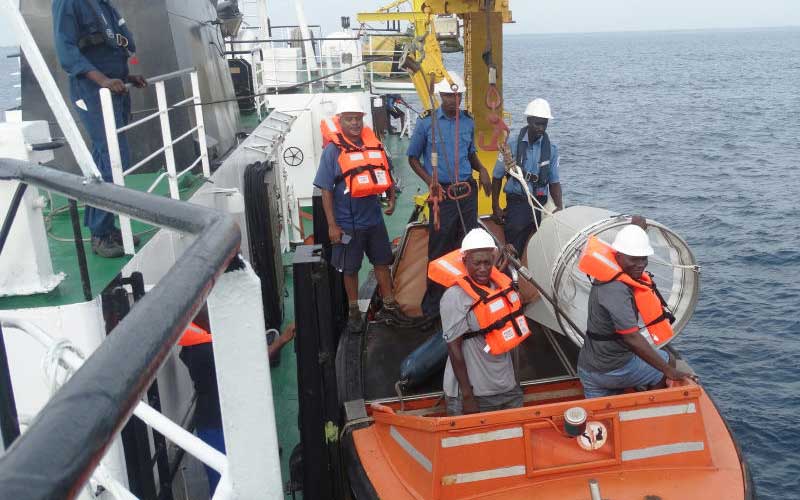×
The Standard e-Paper
Home To Bold Columnists

A team from the state department of fisheries, Kenya Marine Research Institute and Kenya Navy patrols the Kenyan coast on April 19, 2016. [File, Standard]
Illegal fishing, post-harvest losses, poor enforcement of laws and lack of controls are the main impediments to Kenya’s efforts to revive marine fisheries.